Regarding this content, Hanoi Moi Newspaper reporter discussed with economic expert, Dr. Le Quoc Phuong, former Deputy Director of the Center for Industrial and Trade Information (Ministry of Industry and Trade).

-What do you think about the US announcement to postpone reciprocal tariffs with 75 countries, including Vietnam, to conduct negotiations?
-I am not surprised that the US announced the postponement of reciprocal tariffs with 75 countries, including Vietnam. On April 2, when the US announced reciprocal tariffs with more than 180 countries and territories, I predicted that the US would soon take this step to negotiate with the parties.
What surprised me a little here is that the US moved to negotiate right after the reciprocal policy took effect (April 9). That shows that the way of working has changed a lot in a very fast direction.
So why this rapid development? In my opinion, this is essentially a move on the chessboard. US President Donald Trump's decision to impose tariffs very quickly and very strongly, even fiercely, aims to achieve the initial goal of forcing the taxed countries to negotiate with the US to reduce tariffs and reduce trade deficits.
The announcement of the 90-day tariff deferral was made at the right time to preserve US interests and avoid confrontation with possible alliances from countries subject to tariffs. In fact, 75 countries have requested negotiations with the US, of which about 60 countries have sent negotiating delegations to the US.
Apart from China, no country has yet responded to the US tariffs, including the EU and Canada, two fairly tough partners who have previously announced that they will respond to tariffs along with being ready to negotiate.
-What do you think Vietnam needs to prepare next to be able to negotiate effectively with the United States and ensure fair trade?
-We have had very quick response policies and are very knowledgeable about the working style of the US President Donald Trump's administration.
Immediately after the United States announced reciprocal tariffs on goods from 180 countries and territories, on the evening of April 4, General Secretary To Lam had a phone call with US President Donald Trump, proposing to reduce import and export taxes between the two countries to zero.
Prime Minister Pham Minh Chinh also proposed that the United States temporarily suspend the imposition of reciprocal tariffs on Vietnam for at least 45 days to negotiate, prepare and transition status.
On April 10 (Hanoi time), during his visit to the US, Special Envoy of General Secretary To Lam and Deputy Prime Minister Ho Duc Phoc met with US Trade Representative Jamieson Greer to discuss bilateral economic and trade issues. In particular, the US side also requested to immediately start negotiations on a new trade agreement.
This is an important basis for us to continue negotiating with the US on the tariff issue in the coming time.
Along with diplomatic measures, Vietnam also clearly showed its goodwill by committing to increase the import of US goods that Vietnam needs, such as agricultural products, aircraft, liquefied gas, etc. And we are gradually realizing these commitments.
However, in my opinion, in the upcoming negotiations with the US, Vietnam should present important and highly convincing arguments and evidence.
First of all, it is necessary to clarify that Vietnam's trade surplus with the United States mainly comes from FDI enterprises, including US enterprises.
Vietnam has a trade surplus with the United States, but in terms of services, Vietnam has a trade deficit with the United States. When the United States imposed very high reciprocal tariffs on Vietnamese goods, the United States only mentioned the deficit related to goods but did not mention the deficit in services with the United States, such as in the fields of education, tourism, and healthcare.
Regarding education, there are currently about 130,000 Vietnamese students studying in the United States, ranking 5th globally. Not to mention that in Vietnam there are currently many educational institutions of all levels in the United States, leading to a huge trade deficit in educational services.
In Vietnam, there are many large American hotels and restaurants operating, such as Marriott, Hilton, Inter Continental, etc.; McDonald's, Starbucks, KFC, Domino's Pizza, etc. In addition, many Vietnamese people come to the United States for tourism and medical treatment. All of this shows that Vietnam has a huge trade deficit in services from the United States. To ensure fairness in negotiations, we need to raise these issues.
In addition, it is necessary to prove that Vietnam does not export goods from other countries. Vietnam imports large amounts of raw materials at reasonable prices to serve production and business according to the principle of "willing buyer, willing seller". If the US raw materials are cheaper, Vietnam is willing to buy. Not to mention that Vietnamese goods therefore have reasonable inputs, so the price is cheaper when exported to the US, which brings benefits to US consumers.

- According to you, how should Vietnam adjust its production structure, products and markets to avoid trade risks in the future?
- One of the reasons why Vietnam is subject to very high reciprocal taxes is because we have a large trade surplus with the United States. In fact, Vietnam has a large trade surplus mainly due to processing exports to markets including the United States. Therefore, in the coming time, we need to drastically transform from a processing and assembly economy for export to an economy based on innovation, high technology and competitiveness, qualified human resources and high labor productivity...
Transforming into an economy with high scientific, technological and added value content is difficult and requires a long-term process, but we must do it now and do it more strongly. In addition, we must invest a lot of time and effort to achieve efficiency and products.
Diversifying the market is what we are doing and need to do more strongly and proactively. The United States currently accounts for more than 30% of Vietnam's export turnover, so the risk is very high when this market fluctuates. Markets that need to continue to be expanded are the Middle East, Russia, Africa or South America...
Negotiating new free trade agreements is a way to open new markets, but we need to focus on exploiting existing markets well.
Equally important, in my opinion, is the need to strongly develop the very potential domestic market with a population of 100 million people and increasingly high income.
Thank you very much!
Source: https://hanoimoi.vn/can-nhieu-luan-diem-thuyet-phuc-de-dam-phan-voi-hoa-ky-ve-thue-698514.html



![[Photo] Prime Minister Pham Minh Chinh receives Swedish Minister of International Development Cooperation and Foreign Trade](https://vphoto.vietnam.vn/thumb/1200x675/vietnam/resource/IMAGE/2025/5/12/ae50d0bb57584fd1bbe1cd77d9ad6d97)
![[Photo] Prime Minister Pham Minh Chinh starts construction of vital highway through Thai Binh and Nam Dinh](https://vphoto.vietnam.vn/thumb/1200x675/vietnam/resource/IMAGE/2025/5/12/52d98584ccea4c8dbf7c7f7484433af5)
![[Photo] Prime Minister Pham Minh Chinh works with the Standing Committee of Thai Binh Provincial Party Committee](https://vphoto.vietnam.vn/thumb/1200x675/vietnam/resource/IMAGE/2025/5/12/f514ab990c544e05a446f77bba59c7d1)





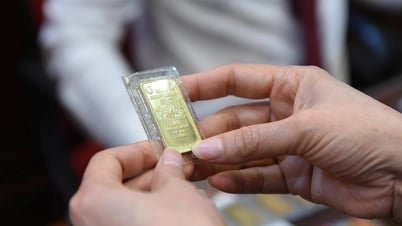






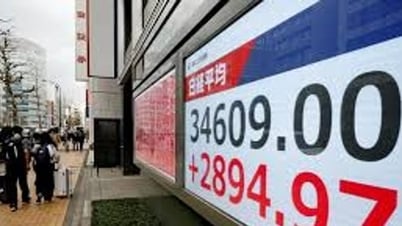
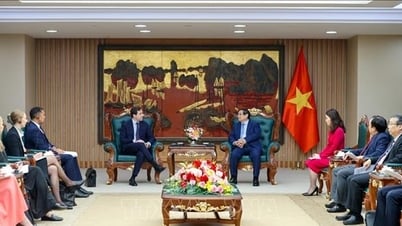
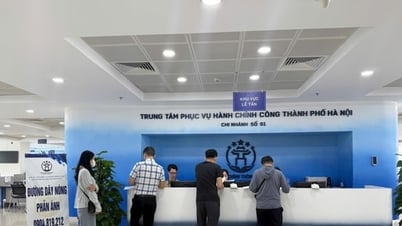

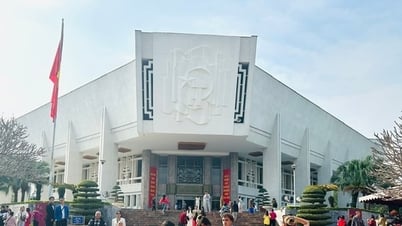




















































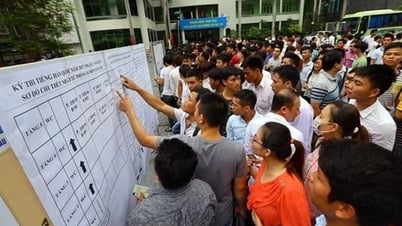















Comment (0)